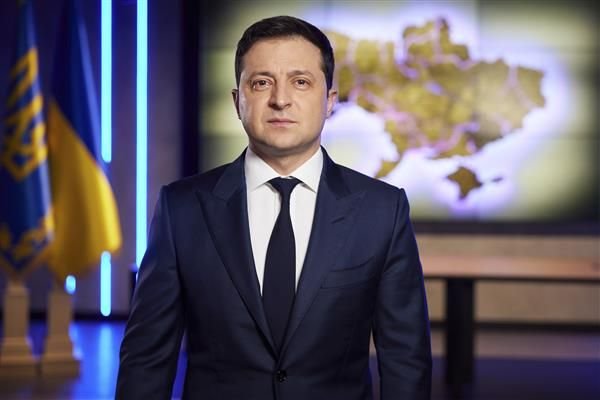On March 11, Ukraine responded firmly to Pope Francis’s call for negotiation to end the war with Russia, with President Volodymyr Zelenskiy dismissing the pontiff’s remarks as “virtual mediation.” The pope’s suggestion to show the “courage of the white flag” and engage in negotiations was met with resistance from Ukrainian leaders, who reiterated their commitment to resisting Russian aggression.
While Pope Francis’s remarks were interpreted as a call for dialogue and peace talks, Ukrainian officials rejected the notion of capitulation or compromise with Russia. President Zelenskiy, without directly referencing the pope’s comments, emphasized the support received from religious figures within Ukraine and stressed the importance of unity in the face of adversity.
Foreign Minister Dmytro Kuleba echoed Zelenskiy’s sentiment, asserting that Ukraine would never raise any flag other than its national flag, symbolizing the country’s resilience and determination. Kuleba also alluded to historical grievances, referencing allegations against Pope Pius XII for failing to act against the Nazis during World War II. He urged the Vatican to support Ukraine’s just struggle and avoid repeating past mistakes.
The head of Ukraine’s Eastern Rite Catholic Church, Archbishop Sviatoslav Shevchuk, echoed the sentiment of national resilience, emphasizing Ukraine’s determination to withstand the ongoing conflict. He reiterated Ukraine’s unwavering stance against surrender, underscoring the country’s resolve to defend its sovereignty and territorial integrity.
In response to Pope Francis’s remarks, Ukrainian President Zelenskiy reiterated his call for the withdrawal of all Russian troops and the restoration of Ukraine’s post-Soviet borders. However, the Kremlin has consistently rejected Kyiv’s terms for negotiations, exacerbating tensions and prolonging the conflict.
Pope Francis’s comments have drawn criticism from European officials supportive of Ukraine’s efforts to repel Russian aggression. Polish Foreign Minister Radoslaw Sikorski called for a balanced approach, urging the pope to encourage Putin to withdraw Russian forces from Ukraine. Latvian President Edgars Rinkevics emphasized the importance of resilience in the face of evil, advocating for continued resistance until the aggressor capitulates.
Overall, Pope Francis’s call for negotiation has sparked debate and differing interpretations among Ukrainian officials and European leaders. While the pope’s intention may have been to promote peace and dialogue, Ukrainian leaders remain steadfast in their refusal to compromise on matters of sovereignty and territorial integrity. As the conflict continues to unfold, the importance of diplomatic efforts and international solidarity in resolving the crisis remains paramount.
